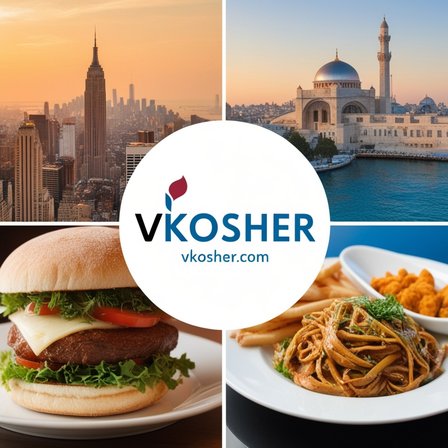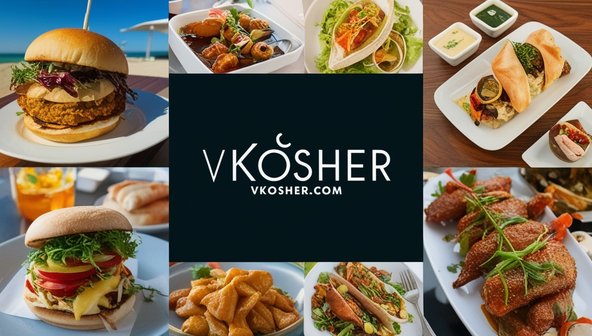The World of Kosher Soda: An In-Depth Exploration
Kosher soda represents a unique intersection of tradition and modern consumer preferences, appealing to a broad range of people interested in maintaining dietary laws while enjoying a refreshing beverage. This article delves into the various aspects of kosher soda, including its definition, significance, and the diverse market options available today. It also explores the manufacturing processes and the factors that contribute to its unique appeal.
Understanding Kosher Soda
Kosher soda is a beverage that adheres to Jewish dietary laws, known as kashrut. The term "kosher" comes from the Hebrew word meaning "fit" or "proper," and it refers to foods that comply with Jewish law. For a product to be considered kosher, it must meet several requirements that include not only the ingredients used but also the equipment and processes involved in its production.
Kosher soda, specifically, follows these guidelines to ensure that it aligns with Jewish dietary practices. This includes the exclusion of certain ingredients, such as gelatin derived from non-kosher animals, and the adherence to specific guidelines concerning the mixing of meat and dairy products. The certification process for kosher products is rigorous and involves oversight by a rabbinical authority.
The Certification Process
The process of certifying a soda as kosher involves a series of meticulous steps. First and foremost, the ingredients used must be inspected to ensure they meet kosher standards. This includes verifying that any additives, flavorings, and colorings are free from non-kosher sources. For instance, some sodas use natural or artificial flavors that may contain alcohol or other substances, which need to be verified as kosher.
Furthermore, the equipment used in the production of kosher soda must be kosherized. This means that any equipment previously used for non-kosher products must be thoroughly cleaned and, in some cases, subjected to special processes to ensure it does not impart non-kosher elements to the soda. This step is crucial because even trace amounts of non-kosher substances can render the entire product non-kosher.
The certification is granted by a reputable kosher certification agency, which provides a symbol or hechsher on the product packaging. This symbol is a mark of assurance to consumers that the product meets all the necessary requirements. Popular symbols include the OU (Orthodox Union), OK, and Kof-K, each representing different certification organizations with their own standards and practices.
Kosher Soda and Its Market Appeal
The market for kosher soda has evolved significantly over the years. Initially, kosher soda was primarily a niche product catering to Jewish consumers observing kashrut. However, as awareness of kosher dietary laws has grown and the desire for inclusive food options has increased, kosher soda has gained a broader appeal.
For many consumers, kosher soda is not just about adhering to dietary laws but also about the quality and authenticity of the product. The kosher certification process often ensures a high standard of quality control, which can be appealing to consumers regardless of their religious background. Additionally, the exclusion of certain ingredients and the adherence to specific production practices can enhance the overall taste and experience of the beverage.
Popular Kosher Soda Brands
Several brands have established themselves as prominent players in the kosher soda market. These brands offer a diverse range of flavors and options, catering to different tastes and preferences. Some of the most popular kosher soda brands include:
- Dr. Brown's: Known for its classic flavors such as Cel-Ray and Black Cherry, Dr. Brown's has been a staple in the kosher soda market for decades. The brand's commitment to quality and authenticity has made it a favorite among many consumers.
- Seltzer: Various seltzer brands produce kosher-certified options, offering a range of flavors and styles. These sodas are often appreciated for their refreshing taste and are a popular choice for those seeking a non-caffeinated option.
- Manischewitz: This brand is widely recognized for its kosher wines but also offers a selection of kosher sodas. Manischewitz sodas are known for their unique flavors and adherence to kosher standards.
These brands represent just a snapshot of the kosher soda market. Many other companies also offer kosher-certified beverages, each with its unique offerings and flavor profiles.
The Impact of Kosher Certification on Production
The impact of kosher certification on the production of soda extends beyond just ingredient selection and equipment usage. The certification process can influence various aspects of production, including the sourcing of ingredients and the adherence to specific manufacturing practices.
For example, kosher certification may require manufacturers to use specific suppliers for certain ingredients to ensure that they meet kosher standards. This can affect the availability and cost of ingredients, which in turn can impact the pricing and distribution of the final product.
Additionally, the kosher certification process may necessitate modifications to production lines and procedures. Manufacturers may need to implement additional cleaning protocols, schedule regular inspections, and maintain detailed records to ensure ongoing compliance with kosher standards. These requirements can influence the overall efficiency and cost of production.
Kosher Soda and Global Trends
The global market for kosher products, including kosher soda, has been influenced by various trends and developments. One notable trend is the growing interest in health and wellness. Many consumers are seeking beverages that align with their dietary preferences and lifestyle choices. Kosher soda, with its focus on quality and ingredient transparency, fits well into this trend.
Another trend is the increasing demand for inclusive and diverse food options. As more people become aware of and respect various dietary practices, the availability of kosher products, including soda, has become more widespread. This inclusivity reflects a broader recognition of diverse consumer needs and preferences.
The Future of Kosher Soda
Looking ahead, the future of kosher soda appears promising. As consumer awareness and demand for kosher products continue to grow, it is likely that more brands will enter the market and existing brands will expand their offerings. Innovation in flavors and ingredients, along with advancements in production technology, may lead to new and exciting developments in the kosher soda category.
Additionally, the increasing emphasis on sustainability and ethical production practices may influence the kosher soda market. Manufacturers may explore ways to reduce their environmental impact and enhance the sustainability of their production processes, aligning with broader consumer values.
Conclusion
Kosher soda represents a fascinating blend of tradition, quality, and consumer preference. Its adherence to Jewish dietary laws, combined with a commitment to high standards of production, makes it a unique and appealing choice for many consumers. As the market continues to evolve, kosher soda is likely to remain a significant player, offering a diverse range of options for those seeking a refreshing and compliant beverage experience. Whether motivated by dietary observance or a desire for high-quality products, consumers can appreciate the distinct qualities and values embodied by kosher soda.




